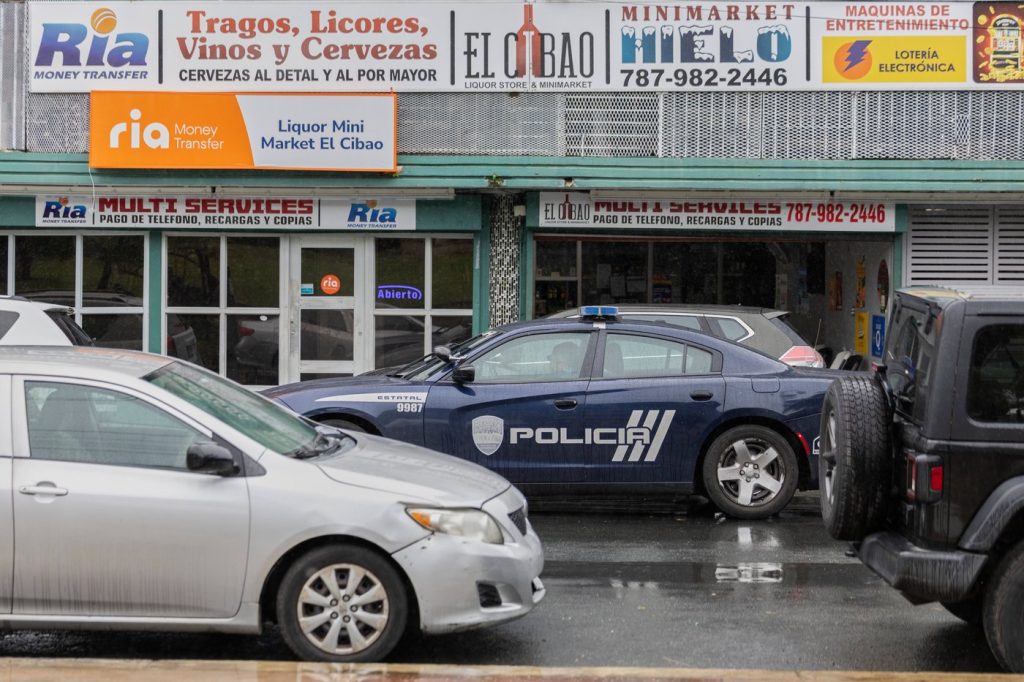SAN JUAN, Puerto Rico — Pastor Nilka Marrero has taken on the difficult role of preparing her parishioners, many of whom are undocumented immigrants, for the increasing threat of federal immigration raids. With recent large-scale arrests in Puerto Rico, Marrero believes that role-playing as a federal agent can equip her community to handle potential encounters with authorities.
Historically, undocumented immigrants in Puerto Rico, where an estimated 55,000 Dominicans live, have felt relatively safe. They have been allowed to open bank accounts, obtain special driver’s licenses, and even start businesses. However, since January 26, 2023, when U.S. Immigration and Customs Enforcement (ICE) initiated extensive raids in Dominican communities, that sense of security has drastically shifted.
The wave of arrests, which has seen more than 200 individuals detained, is a direct response to policies implemented under former President Donald Trump aimed at deporting millions who entered the U.S. illegally. Notably, 149 of those arrested are Dominicans. According to Sandra Colón from the U.S. Department of Homeland Security in Puerto Rico, current efforts are focused on individuals with criminal records or those ordered to leave the country, though she could not provide specific details on those arrested.
As a result of the raids, anxiety and fear have permeated the Dominican community in Puerto Rico. Annette Martínez, the director of the ACLU in Puerto Rico, expressed concerns over the methods employed by ICE and the uncertainty surrounding the detained individuals. In the wake of the arrests, public spaces that once thrived with community interactions have grown eerily quiet, reflecting the growing fear among undocumented immigrants.
A migrant known only as “the fisherman” shared his experience of being arrested. He fled poverty in the Dominican Republic in 2014 to support his family, only to find himself detained by ICE along with his son while they were eating lunch near their regular selling spot. After enduring harsh detention conditions, the fisherman has been released on bond but remains in a precarious situation as his son is still incarcerated in Miami.
In response to the fears gripping the community, Pastor Marrero has mobilized volunteers at her church to provide aid. They distribute food and clothing to those too frightened to leave their homes. Many undocumented immigrants are scared to send their children to school, resulting in attendance rates plummeting as high as 70% in schools with large Dominican enrollments. In response, school officials have instructed principals to deny access to federal agents without a warrant.
Local officials, including San Juan's Mayor Miguel Romero and Aguadilla's Mayor Julio Roldán Concepción, have expressed solidarity with undocumented migrants, pledging to offer assistance without requiring proof of legal status. Additionally, health officials have stepped up to provide medical care for undocumented migrants who have been impacted by the raids.
As the situation evolves, the church remains a steadfast ally for those fearful of the future. Pastor Marrero educates her congregation on their rights and prepares them for potential encounters with ICE. She advises immigrants, particularly those with children born in Puerto Rico, to have necessary documents ready and emphasizes the importance of being informed about their rights during such interactions.
Reports continue to emerge about the dangers and impacts of the federal initiative, highlighting ethical concerns regarding the treatment of undocumented individuals in Puerto Rico. Community leaders and pastors like Marrero work tirelessly to advocate for and support those affected by this new reality.










